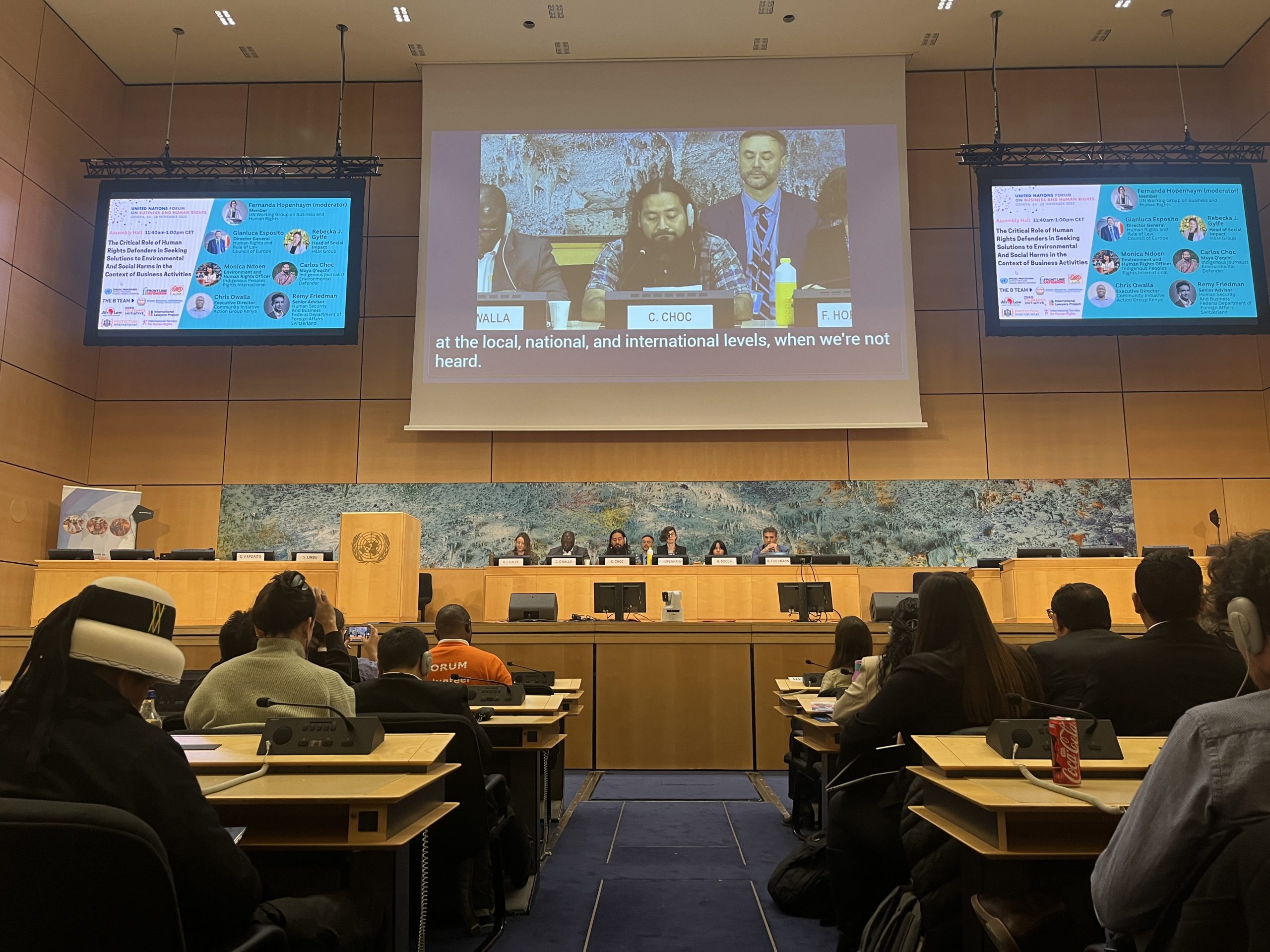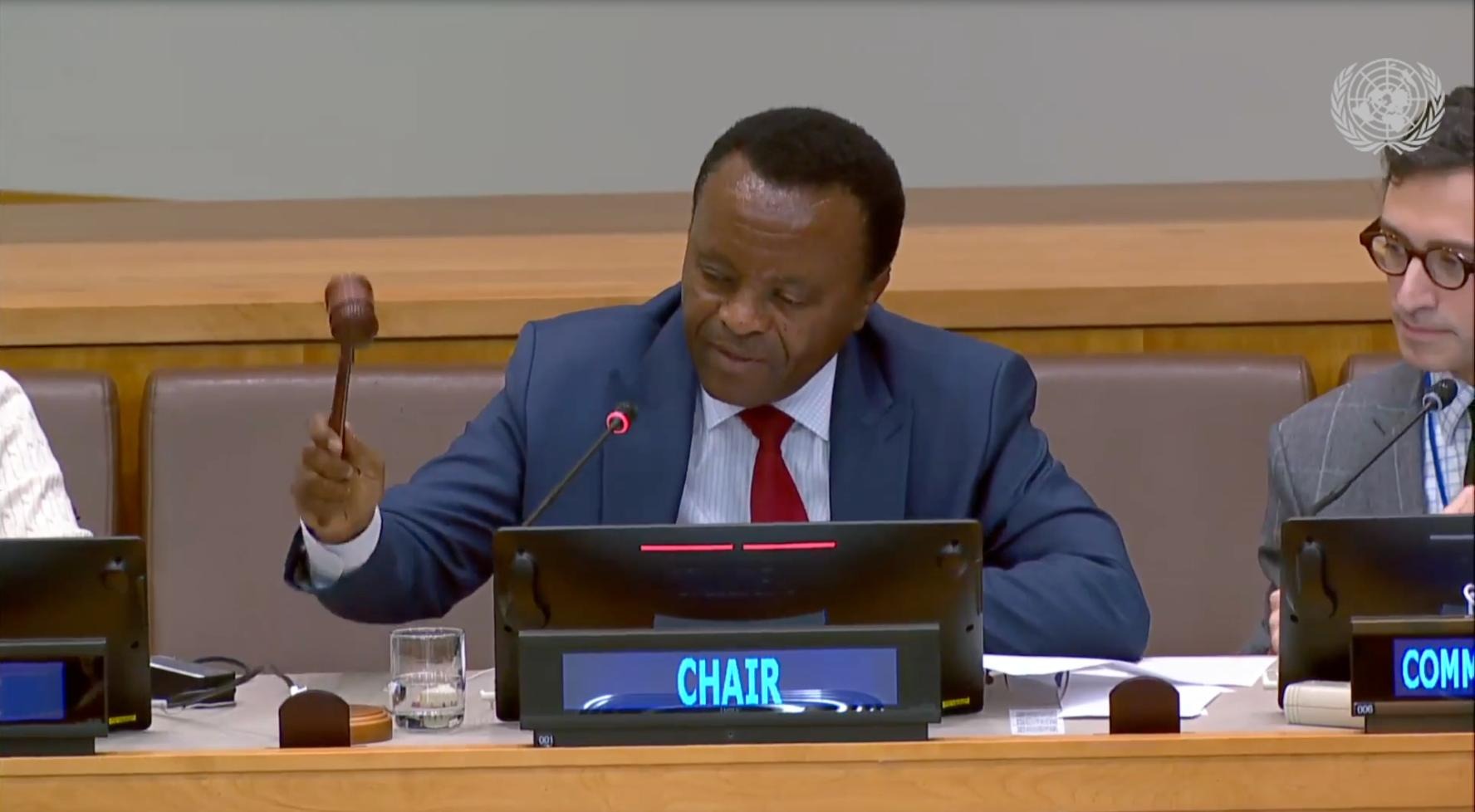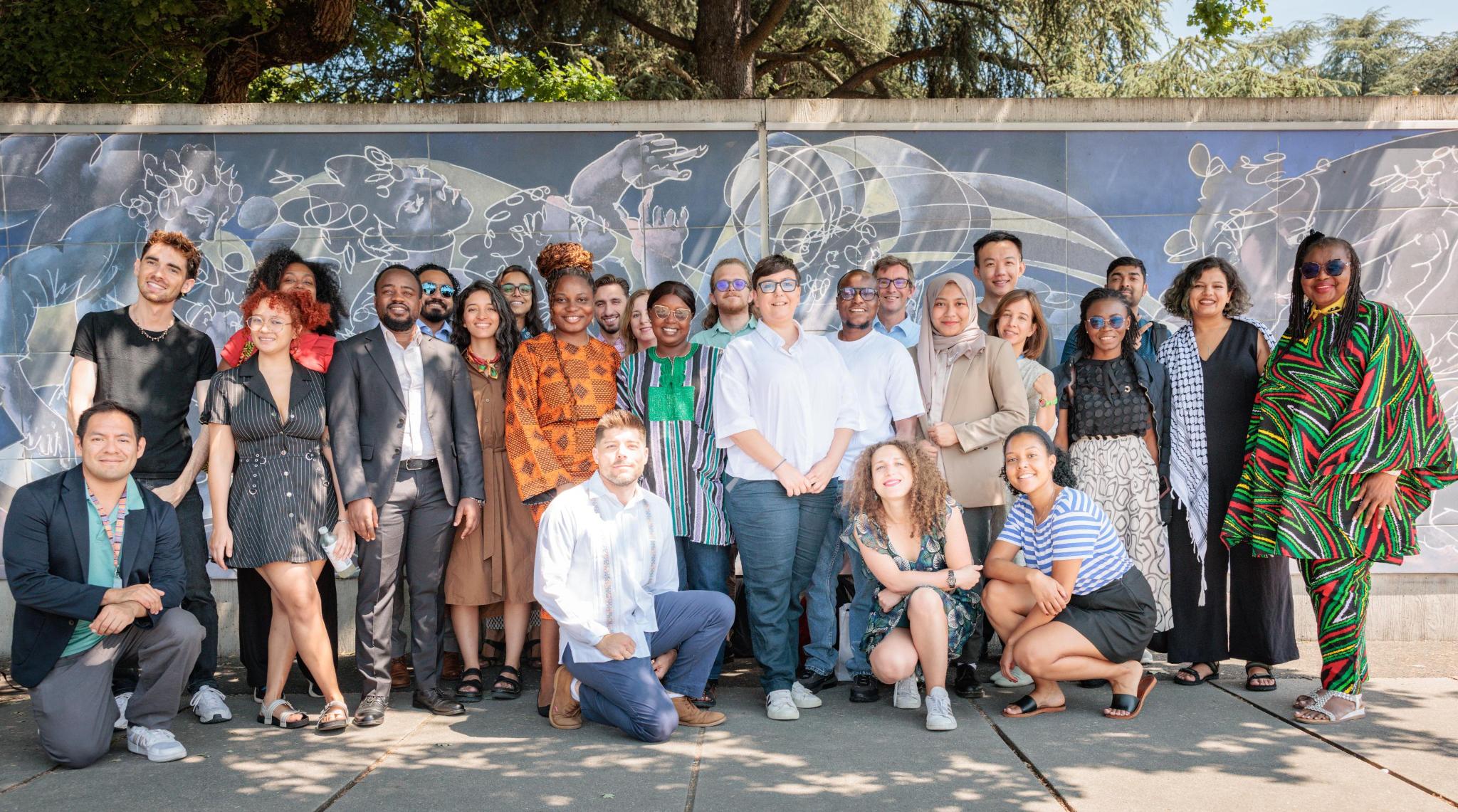During the 79th session of the UN General Assembly’s Third Committee, the Africa Group introduced a new resolution on the Committee’s working methods to reduce the Committee’s workload. Impacting the mandate and functioning of the Committee, the resolution was eventually adopted by consensus following deeply contentious negotiations and four revisions on 21 November 2024.
In particular, the resolution could impact interactive dialogues at the Third Committee. The resolution requests the Bureau of the Third Committee, in consultation with the Secretariat, to provide options to improve the time efficiency of interactive dialogues and presentations, and progressive reduction of the number of interactive dialogues in coordination with the Human Rights Council. Additionally, the resolution permits combining interactive dialogues where feasible, including on a regional basis, and calls for a further review of working methods of the Third Committee at the 86th session in 2031. Other measures that have been encouraged include streamlining resolutions to focus on action-oriented paragraphs, limiting requests for reports that duplicate reporting requirements from the Human Rights Council, streamliniing biennialising or triennialising resolutions, and ensuring timely availability of documents.
Initial drafts of the text included several concerning proposals undermining the functioning of several human rights bodies and mechanisms such as ‘reemphasising’ the status of the Human Rights Council as a subsidiary organ of the General Assembly, risking prejudicing the General Assembly mandated discussions on the status of the Human Rights Council to be held by end of 2025, contemplating a mechanism for the Human rights Council to seek the approval of the Third Committee on any decisions, vesting power in the Third Committee Bureau to cancel interactive dialogues with mandate holders that have been requested by the Human Rights Council and/or the General Assembly, considering biennialisation and/or triennialisation of presentation of reports by Special Procedures and reducing the number of briefings and of reporting on country specific mandates to three meetings per session and combining and clustering briefings on country specific mandates on a regional basis.
While most of these dangerous proposals were eliminated in later stages of the negotiations, serious disagreements still persisted among the delegations. 44 States broke silence under the silence procedure (whereby a text is considered agreed to after a stipulated amount of time if no State expresses an objection privately to the lead sponsor) by expressing concerns on various elements covering 11 paragraphs of the resolution.
While introducing the resolution for adoption, several States from the Africa group expressed concerns about the impact of the growing workload. Eritrea expressed that the inability of many developing countries to cover the Committee’s entire agenda was undermining their collective capacity to engage on critical agenda issues. Egypt expressed that human rights are part of the Committee’s agenda items but generate a disproportionate workload compared to other agenda items within the Committee’s mandate.
Two oral amendments were proposed to the tabled resolution. El Salvador, on behalf of itself and 10 other States (Chile, Colombia, Costa Rica, Ecuador, Guatemala, Honduras, Mexico, Paraguay, Peru, and the Dominican Republic), proposed an amendment to delete the provision granting the Third Committee the ability to conduct a further review of its working methods at its 86th session, in 2031, on the basis that the Committee’s Bureau is the appropriate space guaranteeing equal representation of all regions in consultation with the entire membership of the UN. This amendment was rejected by a narrow margin of 87 votes against, 80 in favour and 12 abstentions. The Republic of Korea, on behalf of Australia, Canada, and New Zealand, proposed an amendment to delete the provision proposing the combination of interactive dialogues where feasible, including on a regional basis, expressing support for the current practice, where the Bureau has the flexibility to exercise its discretion in combining briefings. This amendment was rejected by 103 votes against, 69 in favour, and 7 abstentions.
In its statement after the adoption of the resolution, Hungary, on behalf of the European Union, expressed regret that the process had been rushed during the intensive period of the regular Third Committee session, making it difficult to consult and address concerns of all delegations. The delegate further expressed regret that the EU’s proposals to reflect the important role, contribution, and participation of civil society in the work of the Committee were not taken on board by the co-facilitators. Japan reminded Member States that ‘in light of the worsening human rights situations across various regions, it is incumbent upon [them] to preserve the core mandate and mission of the Third Committee.’
Considering the resolution’s potential to seriously undermine the Committee’s work, ISHR urges all States to actively continue ensuring that any revision to the working methods is based on inclusive consultation processes fostering meaningful engagement from all relevant stakeholders, and does not compromise the Committee’s ability to effectively carry out its mandate. ‘At a time when the promotion and protection of human rights are more critical than ever, the Third Committee’s working methods must facilitate effective cooperation and consensus-building among Member States to effectively address human rights matters within its mandate,’ said ISHR’s Maithili Pai. ‘We regret that the resolution does not include any reference to the contribution of civil society in the work of the Committee, given its crucial role in the protection and promotion of human rights and expertise on several human rights issues addressed by the Committee,’ she added.
Download as PDF




